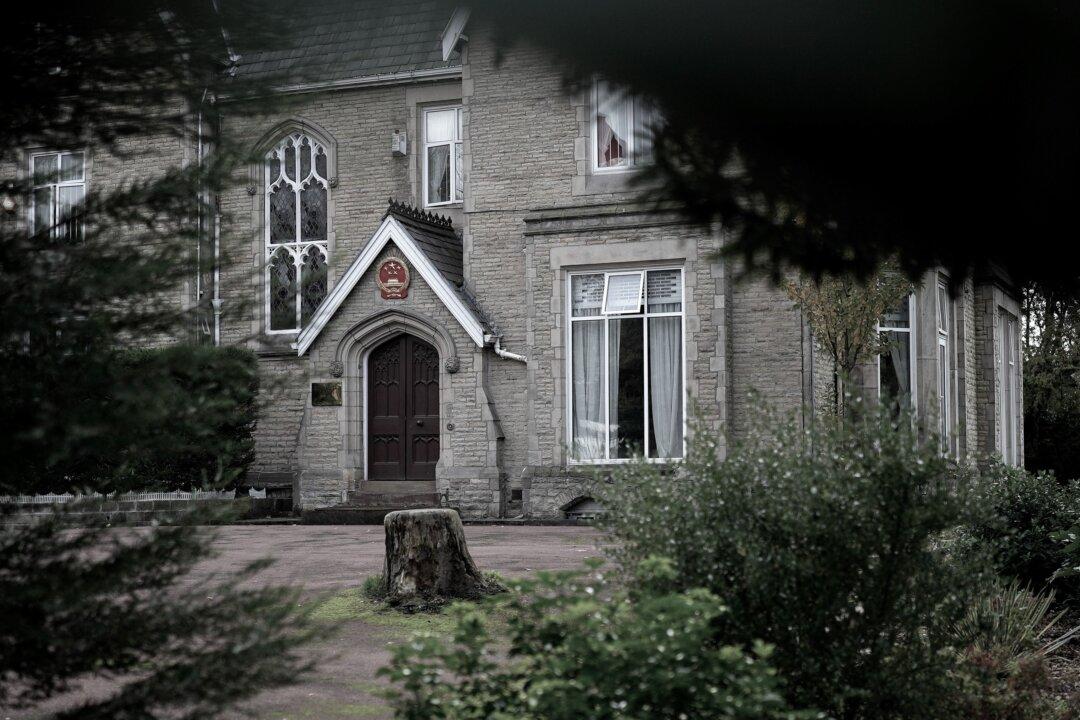A senior Chinese diplomat acknowledged on Oct. 19 that he had pulled the hair of a protester who was then beaten at the Consulate General in Manchester.
Consul General Zheng Xiyuan told Sky News that it was his “duty” to do so because the protester had insulted his country and his leader. He also claimed that a man had threatened his colleague’s life.





